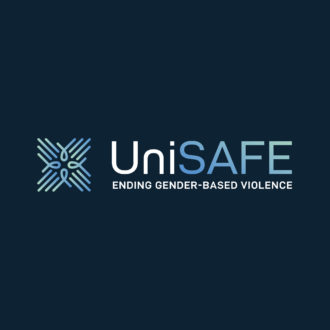
Join UniSAFE: For institutions without gender-based violence
The recently launched UniSAFE project for the elimination of gender-based violence (GBV) is looking for candidates from Czech higher education and academia for the purpose of researching this issue. Participating institutions will benefit from involvement by developing, at zero financial cost, effective tools and measures to combat GBV tailored to their own processes and structures, which will help them prepare for the requirements of Horizon Europe.
According to the UN, violence against women and girls is one of the most common human rights violations in the world. Its occurrence is not limited by origin, income, education or profession and therefore, sexual harassment and other forms of gender-based violence (GBV) pose a serious threat to women in university and academia. Nevertheless, research in this area is very limited, as we have no information on what forms GBV has in educational and research institutions, what its scope is or what its consequences are both for individual career opportunities and for institutions such as employers and education providers. It is therefore important to gather comprehensive information on GBV and to take appropriate measures to eliminate it – a task of the recently launched European project UniSAFE.
UniSAFE relies on a strong multidisciplinary consortium of nine European partners. The strength of the consortium is based on the deep knowledge of the partners and the extensive results of the collaboration in GBV research, the transfer of academic knowledge to operational tools and the dissemination of knowledge. It aims to deepen knowledge of GBV in research organisations and funding and to translate this knowledge into tools and recommendations for the higher education, research and policy sectors. The project’s research, education and field activities will run over a three-year period across Europe, starting in February 2021. The project will explore the mechanisms of GBV, its societal determinants, predecessors and implications, using a holistic research model at three different levels:
Analysis of the prevalence and impacts of GPN through data collected from a survey of 45 research organisations (micro level).
Survey of organisations’ responses and infrastructure through data collected through in-depth case studies, interviews and strategic mapping of research organisations in 15 Member States (intermediate level).
Exploration of legal and policy frameworks through extensive mapping of national experts in 27 European countries and 3 Associated States (macro level).
Join the UniSAFE community!
We are currently identifying research organisations interested in participating in the project through a survey of staff and students to become part of a community that will exchange information on the development of effective policies and measures to combat GBV. Participating organisations will benefit from this community by developing effective GBV policies and measures tailored to their own processes and structures at zero financial cost. They will be provided with first-hand information as well as special support from professional partners. At a practical level, participation will include:
- Conducting the survey according to the instructions and within the time frame.
- Sharing existing rules and measures of your organisation.
Participation may optionally include:
- Participation in a case study.
- Co-creating tools.
- Testing state-of-the-art tools and providing feedback.
- Participation in pilot trainings and workshops for mutual exchange of information.
- Active involvement in the community of practice, in which you can exchange information and learn from 45 research organisations.
For more information about the project, contact us at [email protected] and follow us on Twitter @UniSAFE_gbv.
Disclaimer: The views expressed in this document are those of the project only and not of the European Commission. The European Commission is not responsible for any use that may be made of the information contained therein.
